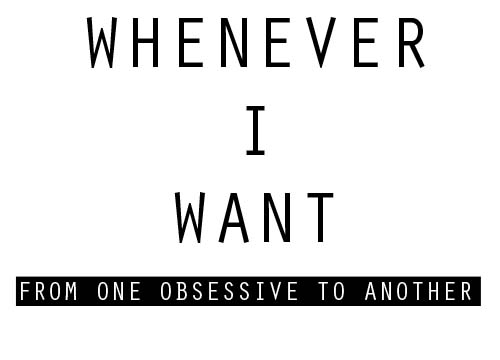
This week Real Groove announced it was 'merging' with The Groove Guide to deliver a more impressive weekly street press. Realistically, New Zealand's best music magazine is closing its doors on a long history of uncompromising coverage and obsessive fandom, having lost an uphill battle to a tough market. And they're not the only ones.
Magazines are dead, in New Zealand anyway. I have witnessed a decline in the published word and image through two scenarios of closed magazines. Firstly, Fluro Magazine, a print publication three friends and myself ran throughout university and beyond closed its doors after eleven issues due to inadequate advertising revenue. Secondly, Pulp Magazine, of which I was Editor for just one issue (which never saw the light of day) failed to see Spring 2010 into fruition, having lost Double Page Spreads from glossy brands. The two represent very different scenarios.
At Fluro we were inherently niche, and whole-heartedly refused to sacrifice editorial content for advertising dollar. The brands who advertised with us formed an inherent relationship with our content and therefore our readers, until, that is, the internet did niche better. Pulp Magazine on the other hand was an Australasian-distributed magazine, for whom advertising included big brands, those big brands expecting editorial in response to their hard-spent cash. While we weren't as obvious as many of the glossy publications, there were certainly editorial sacrifices made to please said advertisers. Until those advertisers either decided to do it better themselves (online and through other more strategic marketing campaigns) or with others.
To me, the former - Fluro Magazine - presents a much better scenario in terms of the advertiser-editorial relationship. Firstly, the readership of any publication, particularly these days - a niche group of people who completely understand the culture they are buying into - aren't stupid, and can attribute an article about an advertiser to the advertising dollars spent on the Double Page Spread that accompanies it. Editorial needs to build a relationship with the reader, and trying to trick them is not the way. Culvating the relationship with quality content, and bringing the advertisers who place ads along for the ride, however, is. Shame the advertisers don't see it this way.
I feel that when I originally picked up Real Groove it was like Fluro - had a loyal readership as a result of an uncompromising tradition. But as advertising dollars became scarce and those corporate brands required what the business calls "Added Value" in the form of advertorial, they potentially lost a lot of that loyalty. It's a Catch-22: advertisers demand advertorial directed at a reader who doesn't want it. No-one can blame a magazine for trying to stay afloat in this way - advertisements print the pages after all - but it does seem a somewhat nihilistic track.
This is a conundrum that has afflicted every publication worldwide, the only difference being that niche publications whose enlightened and engaged audience borders on fandom, are more inherently aware of every page and therefore uncompromising when they realise they are being jipped. More mainstream audiences have a clear advertiser - editorial crossover, have always done so, and sell magazines based on / in spite of this.
Our Antipodean situation has to be to blame too. Firstly, our market is simply too small for the number of niche publications we have, and secondly, because of the expense of sending magazines offshore, a publication can neither gain audience nor advertisers from those off-shore markets. There's only so many magazine readers and buyers here, and when those numbers dwindle, there's no-where else to go.
Finally the internet. Even when a publication like Fluro Magazine was filled with advertising, were were vehemently trying, and ultimately failing to compete with online rivals. The internet has changed the way we do absolutely everything yes, but it has more vehemently changed the playing field for those industries where going online made things cheaper and easier. Namely information sharing in all its avenues. Namely print.
Especially in terms of niche, the internet (and these words seem rehearsed and recounted) can simply provide more specific information to a more specific audience in a more time-sensitive manner. An article regarding the semi-collapse of our print industry probably won't ever hit newstands, but there is a miriad of contemplative moments all over cyberspace.
Music has been the other 'Loser' in the online battle and one could argue that Real Groove's cross-over of both print and music affected its downfall. The blogosphere is alive with time-specific information about every new band worldwide, why would one buy a publication (with quality, in-depth articles and interesting opinion-based columns I might add) when they can simply log on for free.
Ultimately it's only two magazines. But it's not really the publications we loose - back to tose brackets up there. With every avenue for quality, paid writing and photography disappearing immaculately fast, the question as to what type of information we will be forced to consume across the board is the real food for thought. I, for one, am getting sick of seven-second opinion-based soundbites.
Aren't you?

No comments:
Post a Comment